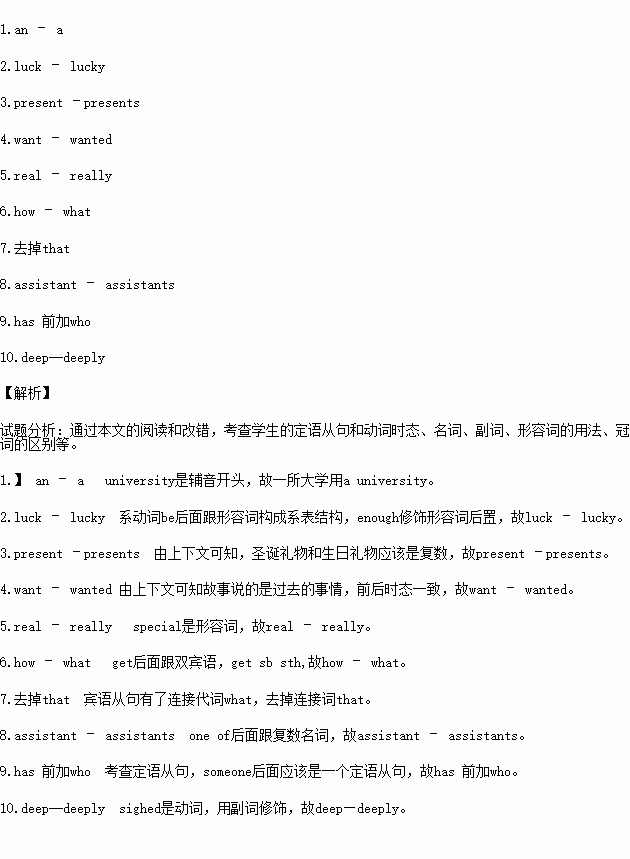题目内容
短文改错
短文中共有10处语言错误,请把它们找出来,并改正过来。
增加:在缺词处加一个漏字符号( ^),并在其下面写出该加的词。
删除:把多余的词用斜线(\ )划掉。
修改:在错的词下面划一横线,并在该词下面写出修改后的词。
Mary was an university student. She didn’t have much money and her parents were not rich, but she had an uncle who had been luck enough to collect great wealth. He always gave her valuable Christmas and birthday present .When her uncle’s birthday came round, Mary want to buy him something real special , but because he was so rich, she did not know how to get him. She went into the best shop in her town and explained that what her problem was to one of the helpful shop assistant. Finally she asked, “What do you have for someone has already got everything he wants or needs?” The girl sighed deep and answered, “Envy(忌妒), only envy.”

